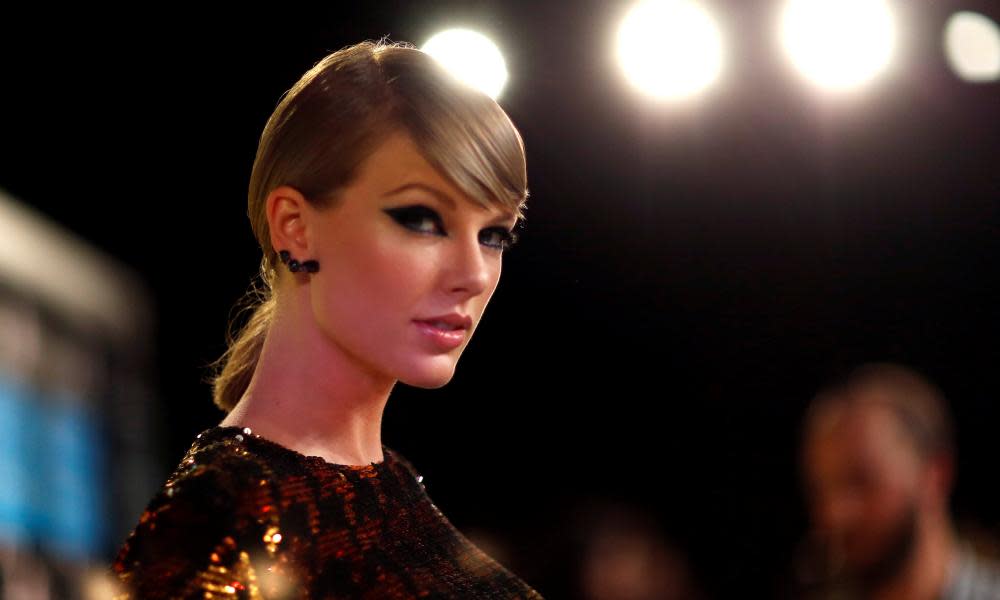The Guardian view on Taylor Swift: an envoy for Trump’s values? | Editorial

In the year since Donald Trump was elected, the entertainment world has been largely united in its disdain for his presidency. But a notable voice has been missing from the chorus: that of Taylor Swift, the world’s biggest pop star. Her silence is striking, highlighting the parallels between the singer and the president: their adept use of social media to foster a diehard support base; their solipsism; their laser focus on the bottom line; their support among the “alt-right”.
Swift’s songs echo Mr Trump’s obsession with petty score-settling in their repeated references to her celebrity feuds, or report in painstaking detail on her failed romantic relationships (often, there is crossover). The message is quintessentially Trumpian: everyone is out to get me – but I win anyway. Seeded with clues to the identities of her famous associates, her lyrics reel in and solidify a hardcore fanbase – usually young, female followers known as “Swifties” – who passionately defend her honour on social media by attacking her detractors.
Mr Trump realised it was more effective to target a core group than attempt blanket appeal in his campaign – but Swift worked it out first. For years, she has directed her extraordinary self-promotional skills towards cultivating a dedicated and emotional army of followers, handpicking particularly loyal fans for private listening parties and, on her latest tour, allowing members of the public to buy tickets only once they have proved their allegiance through their purchasing history. Her new album, Reputation, is not available on Spotify – anyone wishing to hear it must buy it.
To some that makes her an artist wresting control, and a strong woman asserting and celebrating herself. The articulation of her inner life might be labelled introspection or splendid, swaggering confidence if it issued from a boy with a guitar. She calls herself a feminist. In August, she won a court case against a DJ who had groped her in 2013, taking a clear stand against the kind of sexual harassment that has long been trivialised in society, and foreshadowing the Harvey Weinstein allegations and the #MeToo campaign. She has been a target of the kind of misogyny that Mr Trump espouses.
Yet notably her much-publicised “squad” of female models, actors and musicians is largely thin, white and wealthy. In a well-publicised Twitter exchange with rapper Nicki Minaj, she treated the discussion of structural racism as not only incomprehensible, but a way to disempower white people such as herself – though her lawyers have taken action over articles that associate her with the far right, and have taken issue with claims that she has not sufficiently denounced white supremacy.
By focusing only on her own, extremely profitable, business, Swift appears at first glance to be an apolitical pop star, keen to attract people of all leanings. She began her career in country, a genre whose fans have historically identified as Republican (early on, she wrote that “Republicans do it better”, though after Barack Obama’s victory she said she was “so glad this was my first election”). But these days, even heartland country singers are mocking the president. Her silence seems to be more wilful: a product of her inward gaze, perhaps, or her pettiness and refusal to concede to critics. Swift seems not simply a product of the age of Trump, but a musical envoy for the president’s values.

 Yahoo News
Yahoo News 
